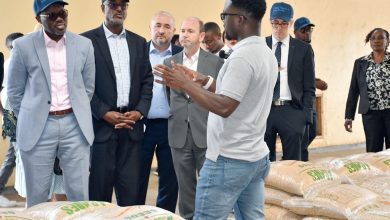MRA rolls out excise tax stamps regime
Malawi Revenue Authority (MRA) has rolled out excise tax stamps on various products in a bid to boost revenue collection and curb consumption of goods hazardous to health.
The tax stamps dubbed Kalondola will be implemented in two phases with phase one effective May 1 covering tobacco cigarettes, alcoholic beverages such as beers, wines, spirits, whisky and opaque beer and non-alcoholic beverages.
The second phase, which will be implemented from July 1, will target bottled water, carbonated soft drinks, drinks made from cereals, energy drinks, fermented sweet tea, lotion and glycerin.

local manufacturing
Meanwhile, MRA has granted a three-month transition period to facilitate the selling or disposal of old stock or unstamped products produced or imported before the rollout date.
Speaking to journalists in Blantyre on Friday, Kalondola project manager Steve Kuntembwe said the initiative will ensure MRA collects more revenue and discourages consumption of illicit products that are hazardous to health.
“Government aims to discourage excessive consumption of these goods and promote public health and generate revenue for the government,” he said.
Kuntembwe said the tax stamps duty will, apart from promoting health issues for the next generation, will also check smuggling as the domestic market will be subjected to tax-stamped products.
He said the tax stamps will also protect local legitimate manufacturing industries from unfair competition from illicit products.
MRA deputy commissioner general Henry Ngutwa emphasised that excise tax stamps are not new taxes, but rather they will show that excise tax has been paid.
He justified the introduction of tax stamps on water, saying “we have to protect society from consuming bad water”.
But Ngutwa said the broader policy of introducing tax stamps is to encourage local manufacturing and ensure import substitution.
“The wider policy objective in tax stamps is not in price but in protecting consumers from hazardous products or unhygienic products. We want to boost local manufacturing,” he said.
Meanwhile, Institute of Chartered Accountants in Malawi chief executive officer Noel Zigowa said apart from the monetary side, it is important to note that this is a means of protecting consumers from consuming products hazardous to health.
In an earlier statement, MRA said they have extended the affixation of excise tax stamps from cigarettes to various excisable products starting May 1 2024 as part of implementation of the Customs and Excise (Excise Tax Stamps) Regulations.
It said the extension of the excise tax stamp regime from cigarettes to other specified excisable products seeks to enhance public health by controlling consumption of unbranded and counterfeit products, protecting the local industry from unfair competition from counterfeit and smuggled products, promoting fair competition and enhancing excise tax compliance by ensuring traceability of such specified excisable products across the supply chain.
MRA has since advised manufacturers and importers to take advantage of this transition period to ensure a smooth transition to the Kalondola regime.
SICPA, which is behind the system, is a world-renowned supplier of enhanced tax stamps and a digital tax stamp management system.
It is used by governments for nationwide control of supply chains involved with the production, import, export, and distribution of excise products.
Currently, Democratic Republic of Congo, Kenya, Malawi, Morocco, Sierra Leone, Gambia, Tanzania, Togo, and Uganda are implementing digital tax stamps using SICPA solutions.





